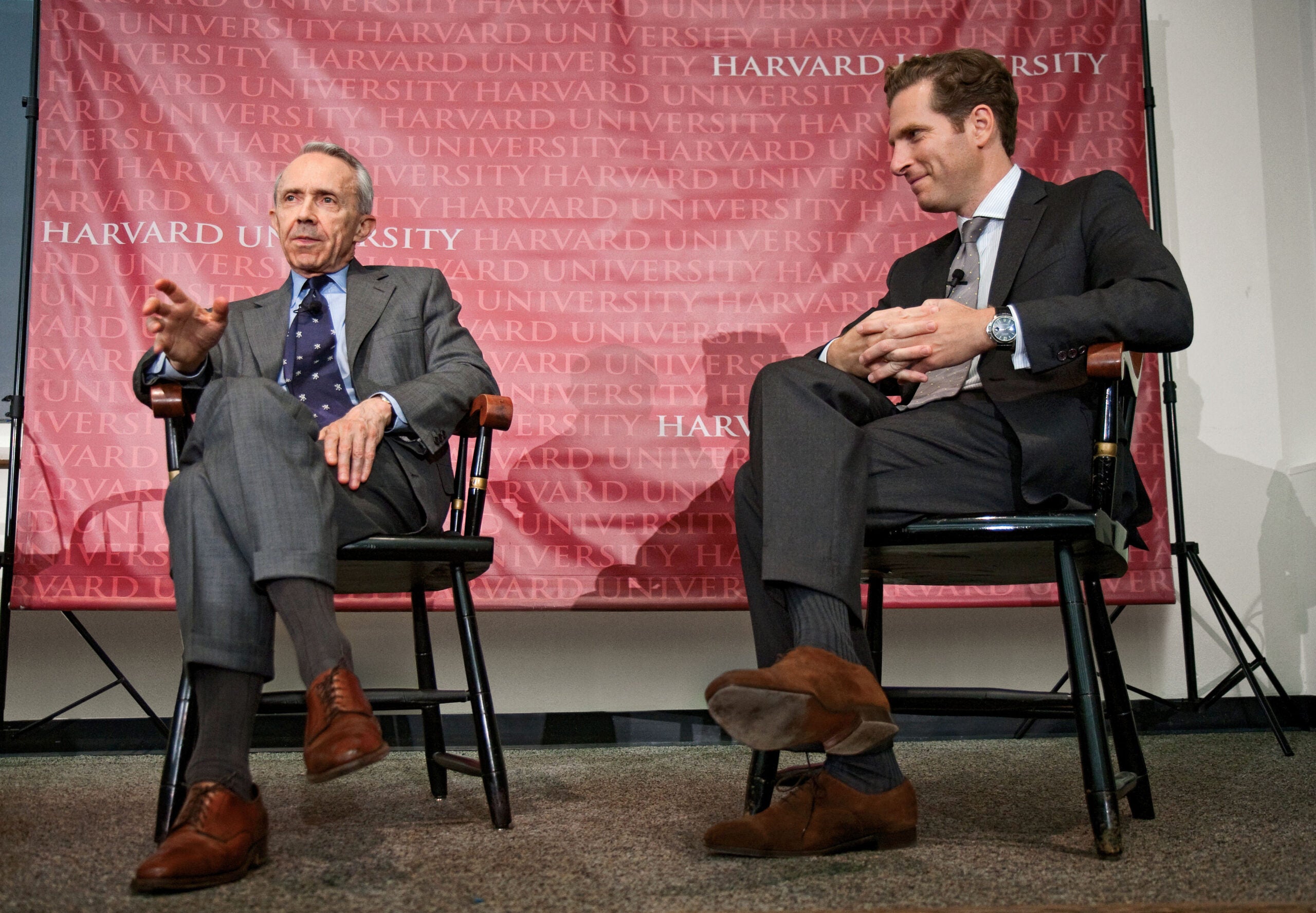Feldman and Souter discuss models of judicial decision-making
On his 70th birthday—and the anniversary celebration of the Constitution’s signing— David Souter, a graduate of both Harvard College and HLS and a native of Weare, N.H., offered some perspectives on the Constitution and his own career.
(Watch a webcast of the discussion, beginning at 1 hour 20 minutes into the video.)
Souter offered his reflections in a discussion with HLS Professor Noah Feldman, who once served as his law clerk, in an Emerson Hall event celebrating Constitution Day.
Appointed to the Court in 1990 by President George H.W. Bush, in 1990, Souter developed a reputation as part of the court’s liberal wing.
In response to criticisms of the Constitution, Souter emphasized that the Constitution was intended by the framers to be a document of “internal conflict.” “We want it both ways,” he said, “We want both order and liberty.”
The role of the courts is to resolve the conflicts that are inherent in the Constitution, said Feldman, who then asked Souter to weigh in on several leading schools of judicial interpretation, beginning with the idea of originalism, which focuses on trying to apply the founder’s original intent to modern-day issues that they could not have foreseen.
The problem with originalism, Souter explained, is that it “is unlikely to provide you with very specific answers to the kinds of questions that you are likely to ask.” Interpreting and understanding a certain text as it relates to the application of the law often requires a reliance on outside references, he said.
One characteristic of a legitimate constitutional interpretation is that a court must “look to sources of meaning and to guides of how to make practical sense of what the Constitution says that have more authority merely than the preference of the judge who is talking.”
Describing himself as a judicial pragmatist, Souter emphasized the importance of making decisions based on the facts in a case, rather than creating new laws that embody larger principles through opinions.
“Your first job is to decide the case, not to embody principles,” Souter said. “You may well not be able to decide the case without accepting some legal principles, but make sure you are being honest in your assessment and your respect for the facts first.”
Feldman challenged this apparent minimalist approach to judicial decision-making, asking Souter if, in his view, his decisions were “moving towards a direction” instead of merely interpreting facts.
Souter agreed with Feldman’s assessment, and said, ultimately, “when one gets to the fork in the road, one has to go one way or the other.”
Bringing the discussion about his judicial philosophy full-circle, Souter added, “When judges have to look to references outside to answer questions about application … which are not spelled out … then [that] is a perfectly legitimate sense in which judges are making laws.”
In his retirement, Souter said, he would be working part time for the U.S. Court of Appeals for the 1st Circuit Court in Boston. In addition, he is lending his support to a New Hampshire citizen’s committee that is exploring a curriculum for civic education in the state’s public schools. And, since being a Supreme Court justice left little time for extracurricular reading, he plans to enjoy his “very good, unread library.”
(Original story appearing in The Harvard Gazette) with additional reporting by Emily Dupraz
